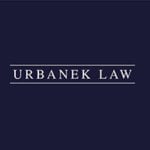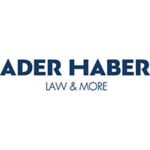-
Overview
Italy’s real estate market in 2025 continues to consolidate its recovery, supported by resilient fundamentals and a notable return of investor confidence. After a soft patch in 2023–2024, capital deployment has accelerated: investment volumes reached roughly €8 billion in the first nine months of 2025 (+21% YoY), with Q3 alone at c. €2.6 billion. Momentum remains driven by retail, which delivered its strongest quarterly performance in years, and by hospitality, where luxury tourism and international operators sustain demand. Logistics has resumed an upward trajectory, with leasing absorption marking the best quarterly result in two years, while living strategies—particularly office-to-residential conversions and student housing—are expanding rapidly.
In the office segment, Milan remains the core liquidity hub, albeit within a supply-constrained environment: CBD vacancy hovers around 1%, prime rents have climbed to €800/sqm/year, and corporates continue to prioritise high-quality, energy-performant space. Rome shows more uneven dynamics, with selective prime rent resilience and persistent scarcity of Grade A product, particularly in the EUR and central districts.
Residential demand remains solid: transactions increased in Q2 2025 (+8% YoY), with Milan and Rome both expanding mid-single digits. Mortgage affordability has improved as rates eased to around 3.18% on average, supporting a credit-led recovery. The rental market, meanwhile, shows a shift toward flexible and short-term formats—notably student and transitional leases—driven by mobility trends and limited prime supply in metropolitan areas.
From a legal and tax viewpoint, the transition away from extraordinary renovation incentives (Superbonus phase-out) continues to rebalance underwriting back to structural fundamentals, ESG capex discipline, and regulatory compliance, while the upcoming EPBD transposition sharpens the focus on energy-performance obligations for both investors and developers.
Overall, Italy has entered a mature, fundamentals-driven phase characterised by selective capital deployment, strong demand for quality assets, and rising emphasis on due diligence, ESG-aligned business plans, and precise legal-tax structuring. The investment landscape remains favourable, particularly for value-add and alternative-asset strategies—including student housing, data centres and telecom infrastructure—set against a backdrop of Southern Europe outperforming broader EU real estate markets in capital attraction and resilience.
-
What is the main legislation relating to real estate ownership?
The principal legislation governing real estate ownership in Italy is contained in Book III of the Italian Civil Code (Codice Civile), which defines ownership rights (diritto di proprietà), possession, servitudes, usufruct, and other real rights (i.e. diritti reali). Complementary to the Civil Code are several key statutes, including:
- Royal Decree No. 499/1929 (on the Conservatoria dei Registri Immobiliari – real estate registries);
- Law No. 47/1985 and Presidential Decree No. 380/2001 (Testo Unico dell’Edilizia – the Consolidated Building Act), governing construction, planning, and building regularity;
- Legislative Decree No. 42/2004 (Codice dei Beni Culturali e del Paesaggio) concerning properties subject to cultural or landscape protection;
- Legislative Decree No. 23/2011 (implementing cadastral reforms and property taxation),
and their respective, subsequent modifications, if any.
In addition to the above, local Italian public Authorities (e.g. Regions and Municipalities) are entitled of legislations powers limitedly to some fields of competence (e.g. the local legislations regarding Town Master Plan – Piano Regolatore Generale) and such local legislation may impact on real estate properties with reference to the issuance of build licences.
-
Have any significant new laws which materially impact real estate investors and lenders come into force in the past year or are there any major anticipated new laws which are expected to materially impact them in the near future?
As of 2025, Italy is implementing reforms aligned with the EU Green Deal and NextGenerationEU programs. Two developments are particularly relevant:
- Energy performance regulation: The transposition of the EU Energy Performance of Buildings Directive (EPBD) is expected to introduce stricter obligations regarding APE certificates and minimum energy standards for transactions and leases.
- Tax and cadastral reform: The ongoing revision of cadastral values (i.e. riforma del catasto), discussed under the 2025 fiscal reform, aims to align registered cadastral values with market values, potentially impacting property taxation (property tax – IMU, registration tax, and inheritance taxes).
No major adverse restrictions for foreign investors are anticipated, but compliance obligations—particularly on ESG and energy—are increasing.
-
How is ownership of real estate proved and are ownership records available for public inspection?
Ownership is proven by registration (i.e. trascrizione) of the transfer deed, which may occur via a sale and purchase agreement , or a donation agreement, both to be executed before the notary with the Conservatoria dei Registri Immobiliari, maintained by the Italian tax authority (Agenzia delle Entrate). Each property is identified through its cadastral reference (sheet, particle, and unit). Registration confers erga omnes effect, and third parties can rely on the public record (i.e. pubblicità immobiliare). Both the Land Registry (Catasto) and Conservatoria are accessible to the public upon payment of nominal fees, allowing inspection of ownership, mortgages, and liens. Please note that the above applies also in case of transfer of real estate’s ownership by virtue of transfer of going concern (i.e. ramo d’azienda).
-
Are there any restrictions on who can own real estate, including ownership by any foreign entities?
Generally, Italy imposes no restriction on ownership by foreign individuals or entities, except for reciprocity conditions under Article 16 of the Civil Code for non-EU persons. EU nationals and companies enjoy full rights under the principle of freedom of establishment. For non-EU investors, ownership is permitted if a reciprocal right exists in the investor’s home country. However, restrictions apply to strategic or agricultural land in certain cases (e.g., properties near military zones or under cultural protection). Acquisitions by non-resident entities may require anti-money laundering compliance and beneficial ownership disclosure under Legislative Decree No. 231/2007.
-
What types of proprietary interests in real estate can be created?
Under Italian law, the principal proprietary rights (i.e. diritti reali) include:
- Full ownership (i.e. proprietà piena);
- Bare ownership (i.e. nuda proprietà) and usufruct (i.e. usufrutto);
- Surface right (i.e. diritto di superficie), enabling separate ownership of buildings from the underlying land;
- Easements (i.e. servitù prediali);
- Use and habitation rights (i.e. uso e abitazione);
- Emphyteusis (i.e. enfiteusi), a long-term leasehold interest (now rare).
With the exclusion of use and habitation rights and easements, the above proprietary rights may be secured by a mortgage (i.e. ipoteca), which isa real security right.
These rights are all registrable and opposable to third parties.
-
Is ownership of real estate and the buildings on it separate?
As a general rule under Article 934 of the Civil Code, superficies solo cedit applies — ownership of the building follows ownership of the land (i.e. accessione). However, separation is possible through the right of surface right (i.e. diritto di superficie), allowing one party to own a structure erected on land belonging to another. This mechanism is widely used in public-private partnerships, renewable energy developments, and commercial projects.
-
What are common ownership structures for ownership of commercial real estate?
Commercial real estate in Italy is typically held through one of the following structures:
- Direct ownership by individuals or entities — common for small-scale investors or family offices.
- Corporate ownership — where the property is owned by a special purpose vehicle (SPV), usually an S.r.l. (limited liability company) or S.p.A. (joint-stock company), for liability isolation and fiscal planning.
- Real Estate Investment Funds (REIFs – fondi comuni di investimento immobiliare) regulated under Legislative Decree No. 58/1998 (TUF) and managed by authorized asset management companies (SGR, SICAFs or SICAFs).
- Leasehold or surface rights (i.e.diritti di superficie) in long-term development projects, especially in public land concessions and energy projects.
The structure is generally driven by legal responsibility, regulatory compliance, tax efficiency, financing requirements, and the investor’s residence status.
-
What is the usual legal due diligence process that is undertaken when acquiring commercial real estate?
A comprehensive legal due diligence (LDD) in Italy typically covers:
- Title verification (i.e. ispezione ipotecaria and visura catastale) to confirm ownership, absence of liens, mortgages, pre-emption rights, or judicial restrictions;
- Urbanistic and building compliance (i.e. conformità urbanistica, edilizia and catastale), verifying consistency between actual and registered conditions;
- Planning and zoning restrictions (i.e. vincoli urbanistici and paesaggistici);
- Occupancy and lease review, including transferability of lease rights;
- Environmental status under Legislative Decree No. 152/2006.Existence of legal dispute(s) involving the real estate property and/or affecting its use whose application has been registered in the competent Land Register.
The LDD is generally performed by legal advisers prior to signing the preliminary purchase and sale agreement.
In addition to the LDD, it is common to perform a technical and tax due diligence by dedicated advisors. In certain cases, especially cross-border structured, clients require a tax structure memo before entering into the transaction in order to set-up the most efficient structure.
-
What legal issues (if any) are outside the scope of the usual legal due diligence process on an acquisition of real estate?
Certain risks may fall outside standard due diligence, such as:
- Hidden structural defects not visible or disclosed by documentation;
- Unregistered easements or informal use rights;
- Potential future planning variations by municipalities;
- Latent environmental contamination where no prior investigations exist;
- Historic cultural heritage designations pending ministerial confirmation;
- Legal dispute(s) involving the real estate property and/or affecting its use whose application has not been registered in the competent Land Register and is not disclosed by other documentation.
Buyers often mitigate these risks through warranties and indemnities in the notarial deed or through representations and warranties insurance (RWI).
-
What is the usual process for transfer of real estate, and when does liability pass to the buyer?
The transfer occurs through a public deed (i.e. atto pubblico) executed before a notary public, who verifies the seller’s title of ownership, and the cadastral compliance. The deed must include all cadastral and urban compliance declarations (i.e. dichiarazioni di conformità urbanistica and catastale). Upon registration with the Land Registry, ownership transfers and becomes opposable to third parties (art. 2644 Civil Code). Liability for property-related risks (taxes, utilities, maintenance) typically passes upon signing, unless otherwise agreed. In practice, a preliminary contract (i.e. compromesso) precedes the final deed, binding the parties to execute the public deed and allowing time for due diligence and financing.
-
Is it common for real estate transfers to be effected by way of share transfer as well as asset transfer?
In the commercial real estate and investment fund sectors, it is common to structure transactions as asset deals, especially for logistic, commercial and office sector, while a share deal is usually used for the retail, shopping centre and other cases which require the transfer of the business licence connected to real estate property. In complex transactions, the real estate property is usually purchased via asset deal, while the licence may be purchased via share deal of the dedicated holding company, if any.
The institutional players prefer the assets deal to mitigate the potential legal risk and benefit from the full depreciation of the assets purchase price. In case of share deal, a price discount of 50% of the potential latent capital gain is usually allowed by the seller.
-
On the sale of freehold interests in land does the benefit of any occupational leases and income derived from such lettings automatically transfer to the buyer?
Under Article 1602 of the Civil Code, an existing lease (i.e. locazione) survives the sale, and the buyer automatically assumes the position of landlord (i.e. successione nel contratto di locazione), provided the lease has a certain date (i.e. data certa) prior to the sale. Rental income and obligations (including deposits) transfer accordingly. The seller remains liable for obligations accrued before transfer, unless otherwise agreed. This rule ensures stability for tenants and continuity of income for investors.
-
What common rights, interests and burdens can be created or attach over real estate and how are these protected?
Common burdens and rights include:
- Mortgages (i.e. ipoteche) registered under Articles 2808–2872 Civil Code;
- Easements (i.e. servitù prediali), conferring rights of passage or utility;
- Usufructs, leases, and surface rights (i.e. usufrutto, locazioni, diritti di superficie), each with distinct registrable effects;
- Pre-emption rights (i.e. diritti di prelazione) under tenancy or cultural heritage law;
- Public restrictions (i.e. vincoli urbanistici, paesaggistici, idrogeologici, dei beni culturali).
All real rights must be registered to be enforceable against third parties. Public burdens (e.g., landscape protection) derive from administrative acts rather than private agreements. With specific reference to leases and in accordance with Article 2643, no. 8 of the Civil Code, the registration is required in case of lease’s duration exceeding 9 years.
-
Are split legal and beneficial ownership of real estate (i.e. trust structures) recognised?
Italian law does not recognise common law trusts domestically, as Italy is a civil law jurisdiction. However, Italy is a party to the 1985 Hague Convention on the Law Applicable to Trusts, allowing recognition of foreign trusts governed by foreign law, provided they are not contrary to public policy. In practice, trust-like effects may be achieved through fiduciary arrangements (intestazioni fiduciarie) or real estate funds, which offer transparency and asset segregation under Italian law.
-
Is public disclosure of the ultimate beneficial owners of real estate required?
Under Legislative Decree No. 231/2007 (Italian AML Law), companies and trusts owning real estate in Italy must disclose their ultimate beneficial owners (UBOs) to the Business Register (Registro delle Imprese). This register is public for corporate entities and accessible to authorities for trusts. Non-compliance may result in administrative sanctions and reporting to the Financial Intelligence Unit (UIF).
-
What are the main taxes associated with real estate ownership and transfer of real estate?
Taxes vary by transaction and ownership type:
Upon acquisition:
- Residential transfers: they are subject to VAT (whether mandatory within five years by a developer, or by option thereafter at different rates, e.g. 22% for luxury houses, and properties under construction, 10% for houses and constructed/renovated properties, and 4% for primary residences purchased by individuals), registration tax is fixed at euro 200 and mortgage and cadastral taxes are fixed at euro 200 each; standard ancillary stamp and registry fees apply (including euro 230 stamp duty and minor cadastral/land charges). Where residential transfers are VAT-exempt, the deed bears proportional registration tax at 2% for “prima casa” or 9% otherwise, with a euro 1,000 minimum, and mortgage and cadastral taxes at euro 50 each; these exempt transactions do not bear the usual stamp and special cadastral charges.
- Commercial/instrumental property transfers: whether the sale is VAT-exempt or VAT-taxed (opted/mandatory), registration tax is fixed at euro 200 as a matter of law (art. 40 DPR 131/1986). In all such instrumental transfers, mortgage tax at 3% and cadastral tax at 1% apply, in addition to standard stamp and registry charges (including the euro 230 stamp duty and approximately euro 90 in combined cadastral/land office tributes). The mentioned mortgage and cadastral taxes are reduced to the half in case the seller or the purchaser is a real estate investment fund. Reverse-charge VAT applies only to optional VAT-taxable transfers of buildings between taxable persons, i.e., where the seller elects taxation in the deed (art. 17(6)(a-bis) DPR 633/1972). It does not apply where VAT is mandatorily due—for example, sales by a construction or renovation company made within five years of completion under art. 10(1)(8-bis)/(8-ter) DPR 633/1972. Reverse charge never applies in B2C transfers.
During ownership:
- Property tax – IMU: it remains due by the owner on the cadastral value using municipal coefficients (typically in a band of roughly 0.5% to 1.14% depending on the municipality).
- TARI (waste tax) is normally charged to the occupant.
- Leases: leases of both residential and commercial (instrumental) properties are naturally VAT-exempt unless the option to tax is exercised in the lease. Where the option is validly exercised in the lease deed, residential units let by construction/renovation companies and social housing under DM 22 April 2008 are taxed at 10% VAT, while commercial/instrumental properties are taxed at 22% VAT. The option to tax must be expressly stated in the contract. Moreover, for residential leases, if the lease is VAT-exempt it bears proportional registration tax at 2%; where the option to VAT is exercised, registration is fixed at euro 67. For commercial/instrumental leases registration tax is proportional at 1%. In the opted case, this 1% applies cumulatively with VAT.
- Corporate landlords are subject to IRES (24%) and IRAP (generally 3.9%, with limited regional uplifts) on net rental income. The IMU is a fully deductible expenses from IRES purposes, while it is not relevant from IRAP purposes. Individual landlords are taxed under progressive IRPEF or may, where eligible, opt for the 21% flat “cedolare secca” on residential lettings. Italian regulated real estate funds (REIFs/SICAFs) are typically exempt from IRES and IRAP on rental income; the IMU municipal tax, however, continues to apply on ownership irrespective of the fund regime.
Upon disposal:
- On exit, individuals generally face 26% capital gains tax, with the long-held exemption available after five years for non-business assets. Corporate sellers are taxed at the ordinary corporate rates (IRES 24% + IRAP on the gain). Italian law periodically offers optional tax basis realignment (step-up) regimes enabling a re-setting of the tax basis to market value against a reduced substitute tax, which is structurally lower than the combined ordinary corporate rate; these regimes are time-framed and should be checked at term sheet stage. No taxes are due for real estate investment fund considering that they are tax exempt.
-
What are common terms of commercial leases and are there regulatory controls on the terms of leases?
Commercial leases are regulated by Law No. 392/1978, whose provisions are mandatory and may be derogated only in case of commercial leases providing for an annual rent exceeding Euro 250,000.00, and subsequent amendments. Standard durations are four plus four years for residential, six plus six years for retail/offices and nine plus nine years for hotels/theatres. Rent is freely negotiable but may be indexed to ISTAT inflation. Tenants generally enjoy statutory renewal rights and protection against arbitrary eviction. Security deposits or bank guarantees are customary (3–6 months’ rent). Parties may agree to net leases (triple net), but property taxes (IMU) and extraordinary maintenance remain landlord’s responsibility unless expressly shifted.
-
What remedies are commonly available for landlords in the event of a tenant breach of a commercial lease?
The landlord may:
- Seek termination for breach (i.e. risoluzione per inadempimento) under Articles 1454 or 1456of the Civil Code;
- Apply for eviction for non-payment (i.e. sfratto per morosità) through a summary court procedure. In such summary procedure the landlord may simultaneously ask also for contract termination;
- Claim damages and/or retention of the security deposit;
- Request judicial enforcement and repossession (i.e. esecuzione per rilascio) based on the judgment stating the termination of the contract or issued in the above mentioned summary procedure.
Italian courts generally protect tenants, but expedited procedures exist to recover possession in clear cases of non-payment.
-
How are use, planning and zoning restrictions on real estate regulated?
Urban and zoning matters are governed by the Consolidated Building Act (DPR No. 380/2001) and regional and municipal planning instruments (i.e. piani regolatori generali). Municipalities issue building and occupancy permits (i.e. permesso di costruire), subject to compliance with zoning requirements. Breaches may result in administrative sanctions, demolition orders in case of construction in the lack of the former licence to build, or criminal liability for illegal construction (i.e. abuso edilizio).
-
Who can be liable for environmental contamination on real estate?
Under Legislative Decree No. 152/2006 (Environmental Code), liability rests primarily with the polluter (i.e. principio “chi inquina paga”). If the polluter is unknown or insolvent, liability may shift to the current owner or possessor for remediation costs up to the property’s market value. Buyers are advised to conduct Phase I and II environmental assessments during due diligence and to negotiate indemnities or escrow mechanisms.
-
Are buildings legally required to have their energy performance assessed and in what (if any) situations do minimum energy performance levels need to be met?
All buildings offered for sale or lease must have a valid Energy Performance Certificate (Attestato di Prestazione Energetica – APE) pursuant to Legislative Decree No. 192/2005. Minimum energy standards apply to new constructions and major renovations. Failure to provide an APE leads to administrative fines (up to €18,000) and potential contractual sanctions. Upcoming EU-derived reforms will progressively tighten efficiency thresholds by 2030.
-
Is expropriation of real estate possible?
Expropriation (i.e. espropriazione per pubblica utilità) is permitted under DPR No. 327/2001, but only for purposes of public interest (infrastructure, urban renewal, etc.) and with fair compensation based on market value. Owners have procedural rights, including notice, objection, and appeal to administrative courts (TAR). Expropriation without adequate compensation constitutes a violation of Article 42 of the Italian Constitution.
-
Is it possible to create mortgages over real estate and how are these protected and enforced?
Yes. Mortgages (i.e. ipoteche) are governed by Articles 2808–2872 of the Civil Code. They must be constituted by notarial deed and registered (i.e. iscrizione) in the Land Registry to be enforceable. Upon debtor default, lenders may initiate judicial enforcement proceedings (i.e. esecuzione immobiliare) leading to auction sale. Mortgage priority follows registration order (prior in tempore, potior in iure). The registration has a duration of 20 years and it expires if not renewed prior the expiration.
-
Are there material registration costs associated with the creation of mortgages over real estate?
Yes. Establishing a mortgage over Italian real estate triggers several statutory registration costs. The main cost item is the mortgage-registration tax, which is generally calculated at 2% of the secured amount including principal, interest and ancillary amounts). However, when the underlying financing qualifies for the Italian substitute-tax regime (typically loans granted in Italy with a term exceeding 18 months by qualifying lenders), the registration tax is replaced by a fixed euro 200 charge, and the substitute tax (generally 0.25%) applies on the loan amount instead. This regime is frequently elected in real-estate financing transactions due to its efficiency. In addition to the registration tax, notarial fees apply (usually linked to the size and complexity of the loan and collateral package), along with minor cadastral and stamp duties. In market practice, these costs are typically borne by the borrower.
-
Is it possible to create a trust structure for mortgage security over real estate?
Italian law does not recognize domestic trust mortgages per se, but foreign-law trusts may hold security interests provided formalities are compatible with Italian registration rules. Alternatively, Italian practitioners often use fiduciary companies (società fiduciarie) or security agent structures in syndicated loans to replicate trust-like effects, ensuring centralized enforcement and creditor coordination
Italy: Real Estate
This country-specific Q&A provides an overview of Real Estate laws and regulations applicable in Italy.
-
Overview
-
What is the main legislation relating to real estate ownership?
-
Have any significant new laws which materially impact real estate investors and lenders come into force in the past year or are there any major anticipated new laws which are expected to materially impact them in the near future?
-
How is ownership of real estate proved and are ownership records available for public inspection?
-
Are there any restrictions on who can own real estate, including ownership by any foreign entities?
-
What types of proprietary interests in real estate can be created?
-
Is ownership of real estate and the buildings on it separate?
-
What are common ownership structures for ownership of commercial real estate?
-
What is the usual legal due diligence process that is undertaken when acquiring commercial real estate?
-
What legal issues (if any) are outside the scope of the usual legal due diligence process on an acquisition of real estate?
-
What is the usual process for transfer of real estate, and when does liability pass to the buyer?
-
Is it common for real estate transfers to be effected by way of share transfer as well as asset transfer?
-
On the sale of freehold interests in land does the benefit of any occupational leases and income derived from such lettings automatically transfer to the buyer?
-
What common rights, interests and burdens can be created or attach over real estate and how are these protected?
-
Are split legal and beneficial ownership of real estate (i.e. trust structures) recognised?
-
Is public disclosure of the ultimate beneficial owners of real estate required?
-
What are the main taxes associated with real estate ownership and transfer of real estate?
-
What are common terms of commercial leases and are there regulatory controls on the terms of leases?
-
What remedies are commonly available for landlords in the event of a tenant breach of a commercial lease?
-
How are use, planning and zoning restrictions on real estate regulated?
-
Who can be liable for environmental contamination on real estate?
-
Are buildings legally required to have their energy performance assessed and in what (if any) situations do minimum energy performance levels need to be met?
-
Is expropriation of real estate possible?
-
Is it possible to create mortgages over real estate and how are these protected and enforced?
-
Are there material registration costs associated with the creation of mortgages over real estate?
-
Is it possible to create a trust structure for mortgage security over real estate?





























